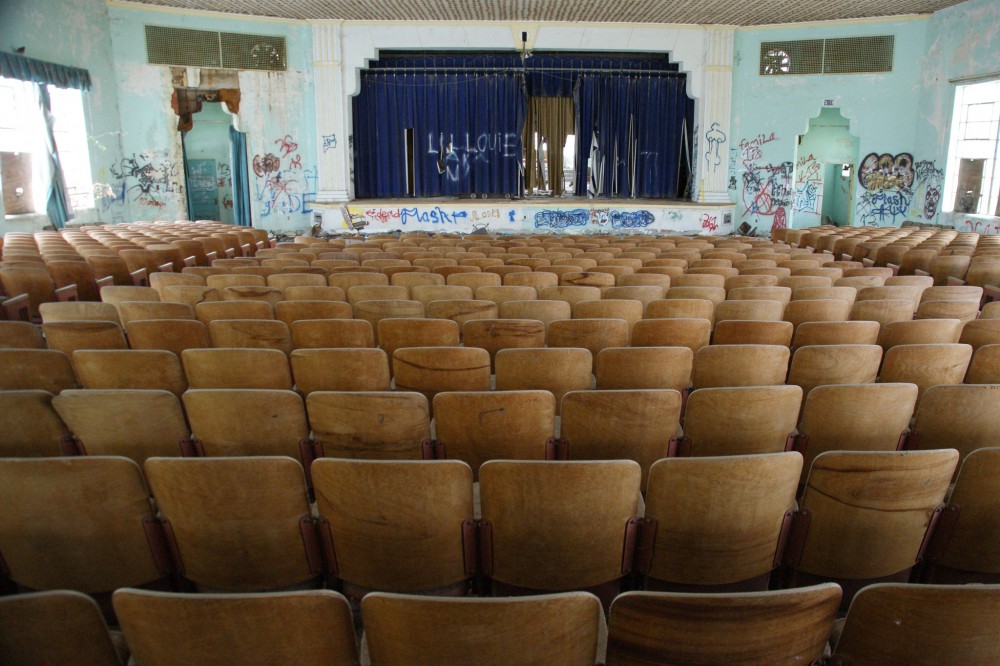Pupil Referral Units. Short Stay Schools. Education Centres. There are numerous names for the places that teach the children rejected by mainstream schools. Given the current vogue for television documentaries exposing the educational lives of ‘bad’ teenagers, pupil referral units (PRUs) are in the public consciousness. The narrative of tough teenagers doing well despite the odds has become a familiar shtick. But volunteering at a PRU as a class assistant revealed the unglamorised reality of the students’ experiences and the day-to-day running of a system that all too often fails them. PRU students don’t necessarily do well despite the odds; the odds are stacked too highly against them.
…
“They are going to look for weaknesses to use against you. They will make personal comments. They will threaten you.”
This warning about the PRU students came from their suitably severe-looking headteacher. I had agreed to a two-week volunteering placement at the PRU, reasoning that as I wanted to teach, a rapid introduction to the ‘worst’ of the education system would be a good way to test my capabilities. But listening to the headteacher, this logic felt masochistic. The deputy headteacher countered her boss, saying optimistically: “You’ll be alright. The students will take to you because you’re new. When they are good, they are very, very good. It’s just when they are bad…” she trailed off with a laugh.
The PRU was housed in unremarkable Sixties architecture, square and shabby but serviceable. It could be distinguished from mainstream school buildings only by the bars on the windows and the automatically locking doors.
…
There are 393 PRUs in the UK, all reserved for students who can’t learn in a mainstream environment. As better-behaved students are reintegrated into the mainstream system and newly excluded students arrive throughout the academic year, there is never any permanent improvement in how a PRU’s student body acts as a whole. Many teachers refuse to work in PRUs or stay only for short time, despite the apparent enticement of small class sizes. It is draining to lose continually the students who work hard. The high turnover of staff also has a negative impact on the students, who are already challenged by a great deal of unsettledness.
…
‘Corridor duty’ is the name given to a role undertaken PRU staff on a daily basis. Necessitated by the frequency with which students leave their classrooms in the PRU, a member of staff permanently patrols the corridor in case of trouble. One morning, ‘corridor duty’ involved encouraging an out-of-bounds student to stop attempting to throw his exercise book into a gym net suspended from the ceiling.
“Talk to me. Just talk to me. You were doing good work the other day. What happened?”
“What do you care? You’ll just leave.”
The exercise book hit the net and was lost.
…
The frustration of the pupils is a response to the inflexibility of the education system. Its illogical flaws are especially apparent in the PRUs, where most of the students aren’t academically minded. Even if students want to learn practical skills, academic qualifications are still mandatory. Though only 1.4% of PRU students achieve five or more A* to C GCSEs, staff are pressured into finding ways to push their students to attain higher grades. Their time would perhaps be better spent finding ways to diversify their students’ skills and catering for individual needs.
Being able to define an oxbow lake will not improve the lives of the majority of PRU students. The practical value of the knowledge is limited. The PRU students understand this. Having fallen through the system and feeling like they have less to lose than their mainstream counterparts, they freely acknowledge that what they are learning is irrelevant by causing trouble and not paying attention.
…
“What’s the difference between a bicycle and a black man?”
Pause.
“A bicycle doesn’t sing when you chain it up.”
Shouts of laughter follow. The joke graces a Year Nine maths lesson via the mouth of a pupil. The pupil and his cohort are disappointed when they elicit nothing more than a raised eyebrow from their black teacher.
…
It is much easier to sensationalise the bad behaviour of PRU students than to establish whether their needs are being met. For certain teachers, the way PRUs are perceived and failed by higher educational authorities is a continual problem. Ian Hedley, a PRU headteacher in Dorset spoke of the ubiquity of negative perceptions that have a direct impact on students’ learning: “We have to do a lot of work with our pupils when they arrive, because they’ve had a long time of being told that it will be a disaster for them if they end up having to come to us.”
…
Since their conception in 1993, PRUs have been growing in number and improving in quality (according to Ofsted). Regardless, they are still difficult places to work and study in. My time at the PRU ended when I went to Oxford to study for a degree (an irony which was not lost on me). Like everyone reading this article, I will never have to cope with the problems faced by PRU students and can only indistinctly appreciate life from their perspective. When they are good, they pass as mainstream students and those in charge are satisfied. When they are bad, they indirectly rail against a system that has not accommodated them well enough.





